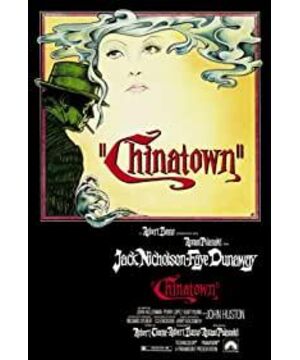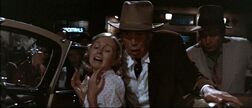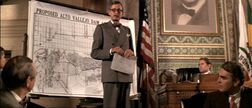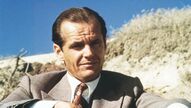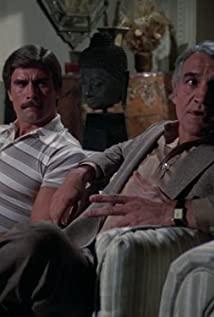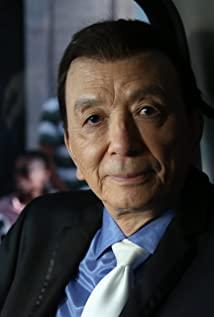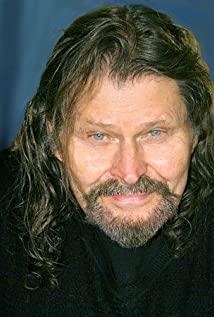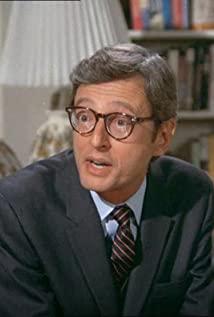the preceding years, a famous Jewish director and the little girl scandal has ignited the old things, the old man took the Oscar for Best Director psychological powerful, decided to face this thing ...... the director was small, He is extremely intelligent and very popular among female audiences. Haha, I think you have guessed it, he is Polanski.
Of course, the above description also applies to Woody Allen.
Today I want to talk about Polanski's "Chinatown". "Chinatown" is of great significance to Polanski: this is the first time he has returned to Hollywood to film after his wife and friends were killed in his home.
I think it is necessary for us to start from the beginning. Polanski was born in France in 1933 and was forced to move to Poland due to the anti-Semitism frenzy. Then he encountered the German invasion of Poland. So a family of three was arrested in three different concentration camps, and his mother died. Auschwitz, while Polanski Jr. escaped by chance, a Polish farmer protected him until the end of World War II. Later, he studied film, became famous as a young director, and developed to Hollywood because of the fame and fortune of "The Devil's Baby". He married a famous actor as his wife, and the beautiful woman with his child lived with him in the mansion in Beverly Hills. Everything feels so good.
It is indeed because it is so wonderful that their family was targeted by an ultra-nationalist killing organization called the Manson family. This organization believes that a race war will break out in the near future, and the murders they committed will accelerate this war. The proud Jewish director is a perfect target. On August 9, 1969, a group of people broke into Polanski’s mansion and brutally killed four adults and the eight-month-old baby in Polanski’s wife. Polanski happened to be not in the United States.
After that, Polanski left the United States and left the United States for five years. Years later, he repeatedly claimed that the last thing he regretted in his life was not being with his wife that night. California Water Wars
Five years later, he returned to this place of right and wrong and filmed "Chinatown". This topic is very strange, because Chinatown only appears at the end of the movie. And this story has little to do with Chinatown. This story is based on a true Los Angeles story: "California Water Wars". This is a government conspiracy. Officials and businessmen have colluded to use the water shortage crisis in California to increase the price of private land and fill their own pockets. The movie is that a detective is ordered to investigate a peachy incident, then walks into a murder case, and then walks into the shady scene of the "California Water War". In the process, the detective fell in love with the heroine, the wife of the deceased, and she also had a subtle connection with this conspiracy. The whole story is very complicated, the open lines and the dark lines have many false and real traps, and there are many suspense. There is no intention of spoiling here.
The following points can be called "Chinatown": 1. The servants of the heroine are all Chinese. 2. The ending takes place in Chinatown. 3. The detective used to be a cop in Chinatown. Because I was disgusted with the decision to resign there, I did not want to go back again. 4. A joke about the Chinese.
This joke is the key to the movie. When the protagonist and passer-by A joked about what to do when people are tired of their own wife, passer-by B said, you should learn Chinese. "When Chinese people start to get tired of their wives, they will first quietly read Confucius' books, and then continue to live. After they start to get bored again, they stop, then continue, and then they are bored again... they will continue, Tired again, and then they will go outside the house, stare at the moon, or do something like that to make the current life better..."
This joke is actually a bad joke. A meaty joke about "in-out". When the actor repeated this paragraph with a wild laugh, he himself felt very amused. In his opinion, he was tired of running away. It's like he escaped from Chinatown.
The hero and heroine had a conversation, and the woman asked him why he left Chinatown. He said he was tired of being there. The woman asked if he was related to a woman? The actor replied that I didn't want to drag them down.
In the narrative of this film, we can vaguely see that Chinatown seems to be an extra-legal place. The protagonist has been reluctant to advance his previous work, just like a blemish and gloomy past. There is also such a saying about the production of the script: It is said that one day, the screenwriter chatted with a policeman who worked in Chinatown and asked him what he did at work every day. The police said that we did nothing. The screenwriter was puzzled. , But the police explained that this was an order from the top, "Their (Chinese) culture is too far from ours. Sometimes when we do things, we don’t know whether we are stopping or assisting crime, so we simply Just ask," Robert Donald heard it and thought it was a great symbol, so he incorporated it into the script.
Because of this, we can imagine that Chinatown is in a gray area of the law, and a lot of shameful criminal activities must have been deposited. And we seem to be able to see the situation of the male protagonist when he was a policeman in Chinatown before, witnessing crime and being helpless. This is naturally a fate that the arrogant male protagonist cannot accept, so he chooses to be a private detective and takes control of his own destiny. He didn't want to go back to Chinatown and endure it all.
Chinatown seems to be a past that one does not want to look back on. It is where the inability to control one's own destiny drags down the lover. So after carefully reviewing the joke about the Chinese, I don’t think the protagonist will find it so funny. In fact, he can’t laugh anymore as the plot develops.
At the end of the film, he returned to Chinatown and witnessed the beloved heroine being headshot by the police on the street. When he wanted to do something, others pulled him away: "Hey, it's Chinatown." Finally, he returned to Chinatown, dragging down his beloved woman.
In the film Polanski also played a role, a negative role, he cut open the detective's nose with a dagger, the action is simple, but the atmosphere is very violent.
In the 1969 murder, the Manson family wrote a word in the blood of the hostess on the door of the villa: "PIG". And I think Polanski chose this script and changed the original happy ending into a tragedy.
I think the image of "Chinatown" has another basic aspect that is "racism." Chinese and Jews have similar situations when they are discriminated against and hated, and Polanski probably also has this in mind. It's sad.
For Polanski, "Chinatown", I think, may also symbolize the inability to control one's own destiny and drag down the lover. This was true in World War II and in the 1969 murder case. Maybe Polanski thought that after escaping the frenzy of slaughter of Jews in his childhood, he could find peace and never have to go back. But racism and violence still came to him again. And this arrangement of fate is undoubtedly a major destruction for him who was originally proud of the spring breeze.
Such an autobiographical film seems to point to a quagmire of fate. Once there is a desire to survive, it is not far from death.
Wang Qi: The script is really perfect. I thought it was a genre movie, but I didn't expect it to be so dark.
Shao Dong: I recently watched his "Venus in Fur", a story about a play in a play. It is very strange: the director and actress lined up the play "Venus in Fur", this one The play is adapted from the novel of the same name, and the actor in the novel also wrote a long poem called "Venus Wearing Fur". Toned colors. What's more terrible is that this movie itself borrows some drama techniques, and it seems to be a cinematic drama.
View more about Chinatown reviews


